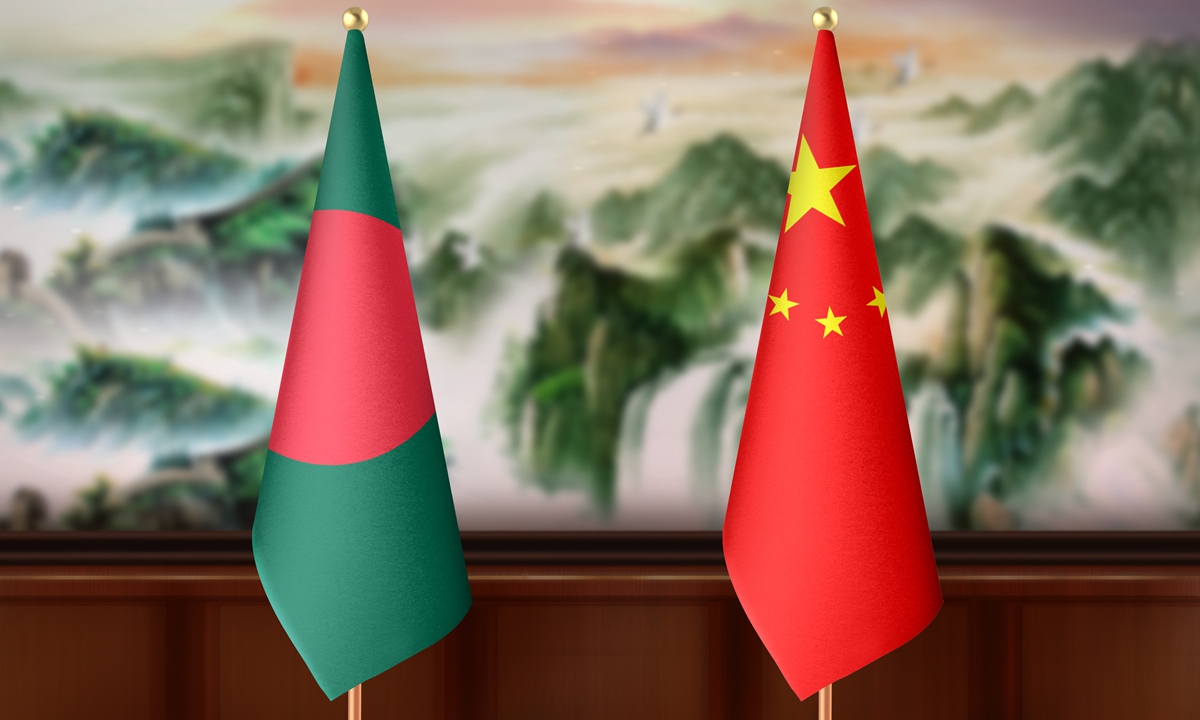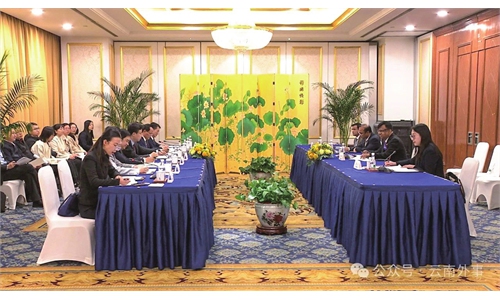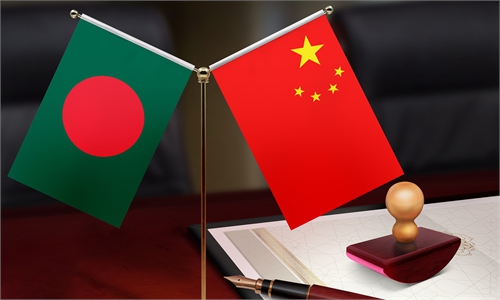
China Bangladesh Photo: VCG
Bangladesh's Chief Adviser Muhammad Yunus left Dhaka for China on Wednesday for a four-day official visit. This is his first state visit following the transformation of Bangladesh's domestic political structure.Yunus' visit comes as no surprise, as this year marks the 50th anniversary of China-Bangladesh diplomatic ties and the Year of People-to-People Exchange, which is a crucial time for bilateral relations. His visit shows that, despite the political situation in Bangladesh, the relationship between the two countries remains strong. The Bangladeshi mainstream media has reported that Yunus' visit to China is going to be the "most important visit" by a Bangladeshi leader over the last 50 years, as the two countries aim to take the relations to a new height.
Even before Yunus became the chief adviser of the interim government, he forged a deep friendship with China. Yunus' understanding of China and China's understanding of Yunus is deeper than the outside world thinks. This also makes him more objective and rational in making choices as head of the interim government.
For Bangladesh's interim government, it is urgent to boost the economy and address employment issues, especially youth employment. In Bangladesh, unemployment among young people is a big challenge. The country has abundant human resources; however, nearly 40 percent of young people are unemployed.
Yunus himself knows that reinvigorating the economy requires harnessing global resources. With America's strategic contraction, Bangladesh is uncertain about the extent of assistance the West can provide. China remains a viable option for enhancing cooperation in various fields, such as industry transfer and agriculture technology improvement.
However, protecting the safety and interests of Chinese investments in Bangladesh is a crucial task for the interim government. If the interim government can implement effective measures to ensure the safety of foreign investment, it will significantly improve the perception of doing business in Bangladesh.
In the field of infrastructure, China and Bangladesh have a sound foundation for cooperation. Bangladesh is eager to solve the issues surrounding the Teesta River. Bangladesh and India share 54 rivers. Most of the rivers originate in India, giving New Delhi some leverage in negotiations.
For the interim government of Bangladesh, a major task is to rebuild diplomatic independence, which means reducing dependence on India's influence. Dhaka has been affected by India's manipulation of water resources. Repairing its own water control system is challenging, but necessary to improve local people's livelihood.
India is a major destination for medical treatment for Bangladeshi citizens. However, India has tightened its visa policies in recent days. Under such circumstances, China has stepped up and hosted the first group of Bangladeshi medical tourists in Kunming, the capital city of Yunnan Province, earlier this month. Regarding seeking medical treatment, China presents an important alternative for the Bangladeshi government to address these issues. In the near future, medical tourism in China may become an attractive option for Bangladesh and the two countries have great potential for medical investment and treatment.
In addition, China will never point fingers at Bangladesh's internal affairs and always respects the choice of the Bangladeshi people. China welcomed the interim government a day after its swearing-in, with Beijing stating that it "strictly follows the principle of non-interference in other countries' internal affairs." Chinese Foreign Minister Wang Yi met Yunus on the sidelines of the United Nations General Assembly meeting in New York in September of last year. These actions have fostered trust among the Bangladeshi people, who see China as a true friend, reminiscent of the time-tested friendship built over the past 50 years.
The author is director of the Centre for South Asian Communication Studies, Academy of International and Regional Communication Studies, Communication University of China. opinion@globaltimes.com.cn


